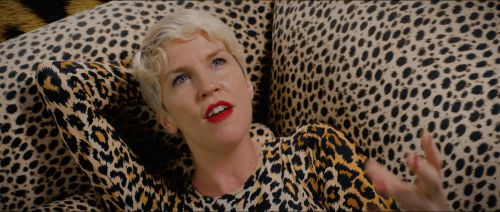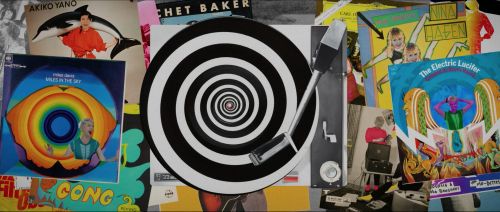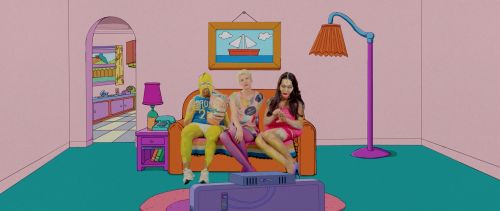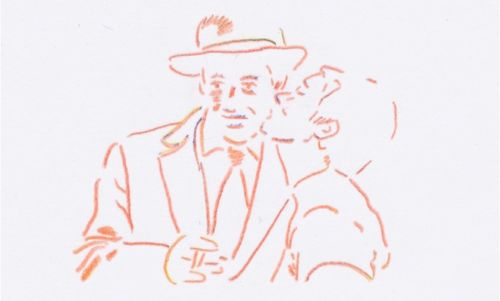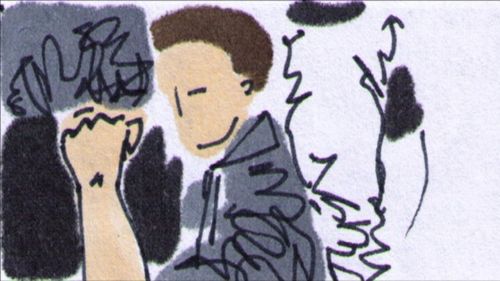European Competition '19
The selection of films for this year’s European Competition was exceptionally difficult, as we have received a whole lot of amazing submissions. All in all, we have chosen 29 films from 14 countries. The production stage of all films we will present was concluded in 2018-2019. As always in the main competition, although the films had been shot all around the world, there were European artists involved in the production. Just like every year, the topics vary a lot, from issues of the highest importance to professional entertainment. Many of the presented pictures are special, often crossing the boundaries of a classic documentary. As is tradition, the screenings will be followed by discussions with the authors of the competing films. We find this very important, as the direct meeting of the viewer and the author is always a particularly inspiring experience. This year’s competition includes five German and five Spanish films, four from the UK, three productions from France and the Netherlands each, two from Poland and Portugal, and one from Belgium, Italy, Romania, Sweden and Ukraine. There will also be co-productions with the participation of Russia and Belgium, also El Salvador and Spain.
Past events
- 27.10.2019, 20:00 - 22:00, Kino Zamek, European Competition '19 – block 5
- 27.10.2019, 17:30 - 19:30, Kino Zamek, European Competition '19 – block 4
- 26.10.2019, 20:00 - 22:00, Kino Zamek, European Competition '19 – block 3
- 26.10.2019, 17:30 - 19:30, Kino Zamek, European Competition '19 – block 2
- 25.10.2019, 20:00 - 22:00, Kino Zamek, European Competition '19 – block 1
Filmy poprzednich edycji
- Across the Andes, 25'
Seven years after their father's suicide, siblings Anna and Henrik Dahlbring meet to discuss their father and his impact on their lives.
read more
- Butterflies in Berlin - Diary of a Soul split in two, 24'52"
Alex moves to Berlin in 1933, during the Weimar Republic period. Looking for his place in the world and his sexual identity, he becomes the first out-of-surgery transsexual in History. That happens unfortunately during the National-Socialism rise, a social disruption that turned the capital of sexual freedom into the most repressed country of all times.
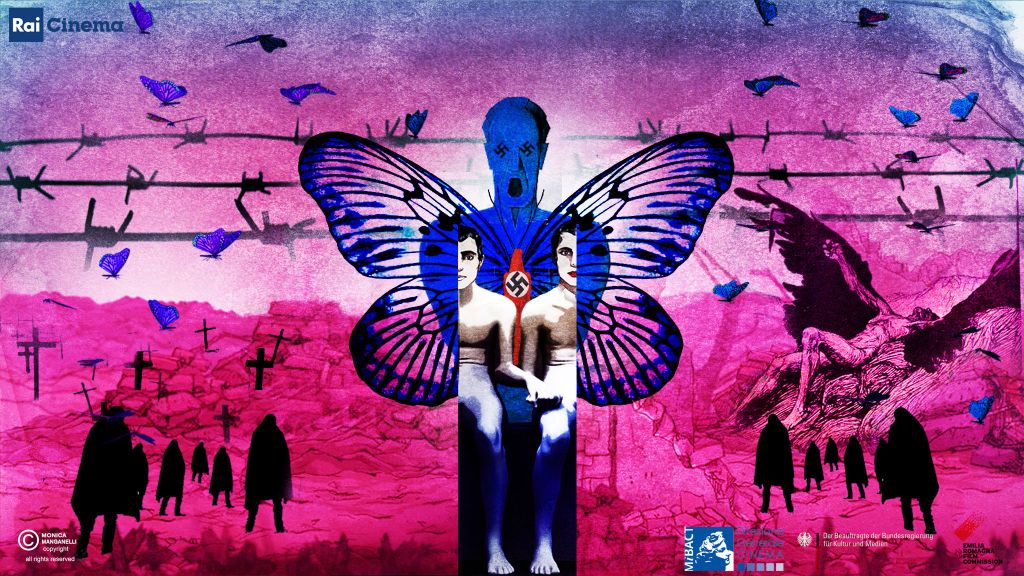
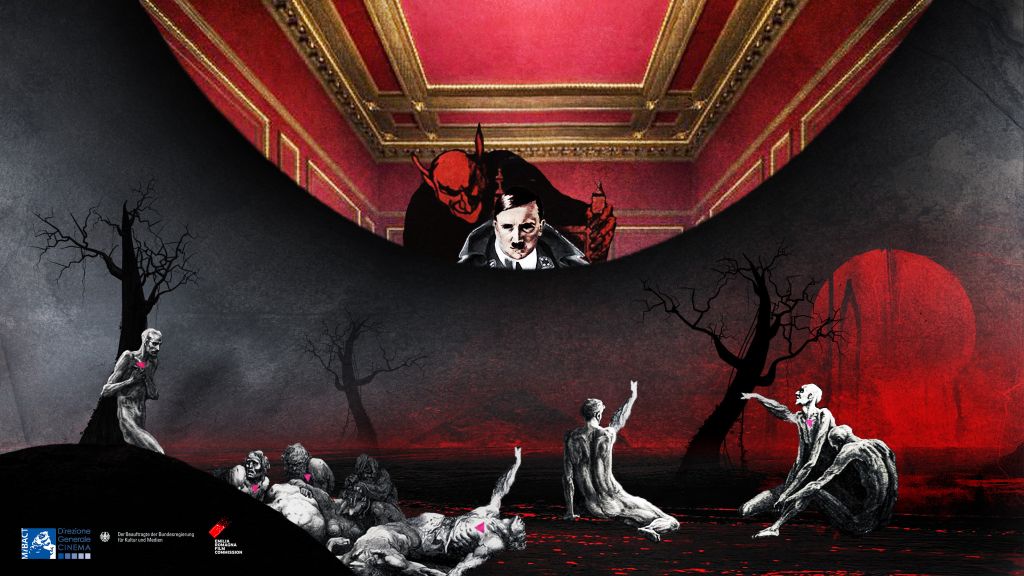



read more
- Capitaine France , 21'54"
A documentary about the life of Capitaine France, the greatest French superhero the world has ever known, from 1900 to present day. His adventures lead him to Omaha Beach, all around France and bring him to face a giant robot that threatens to destroy his country.
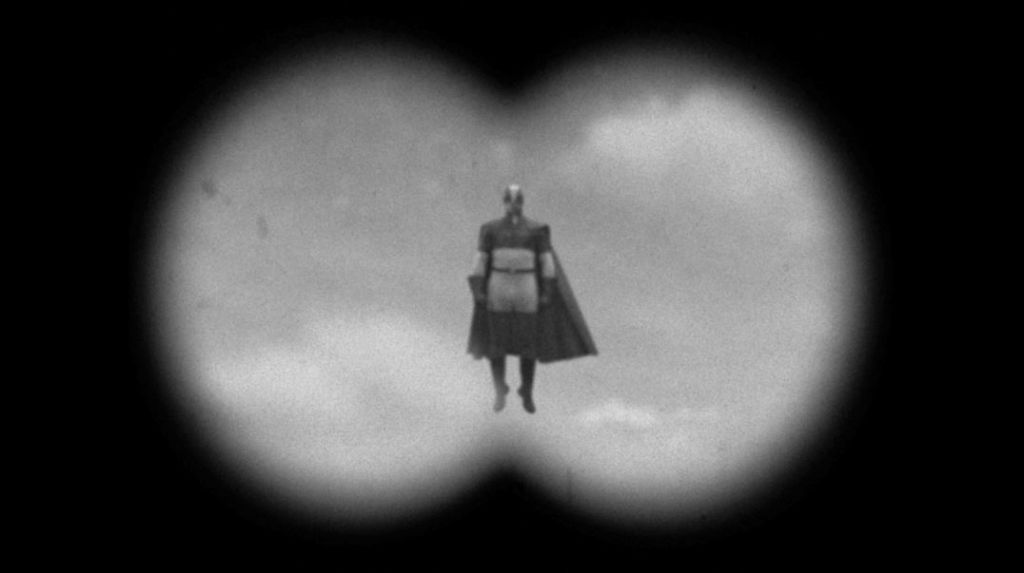
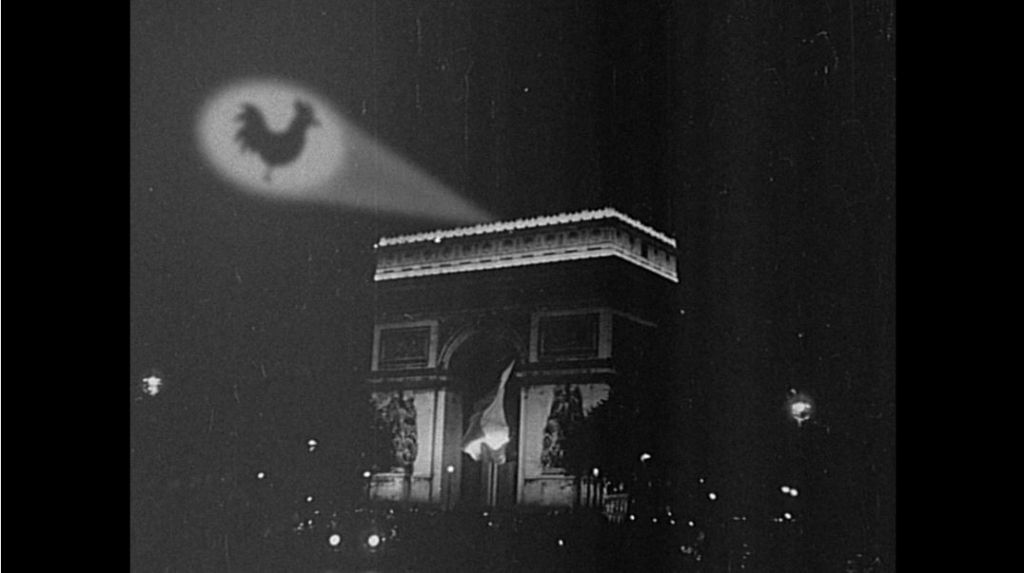
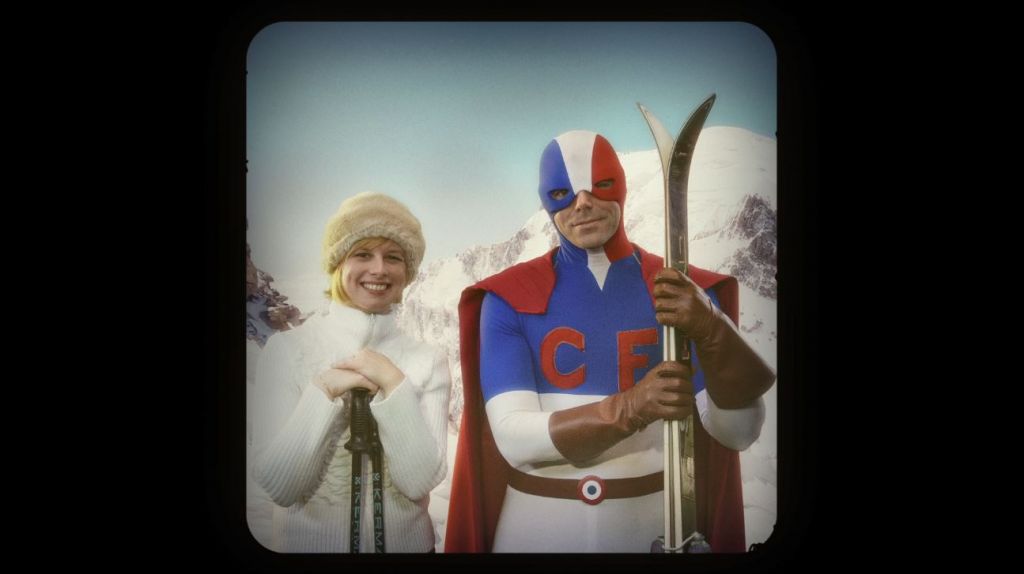
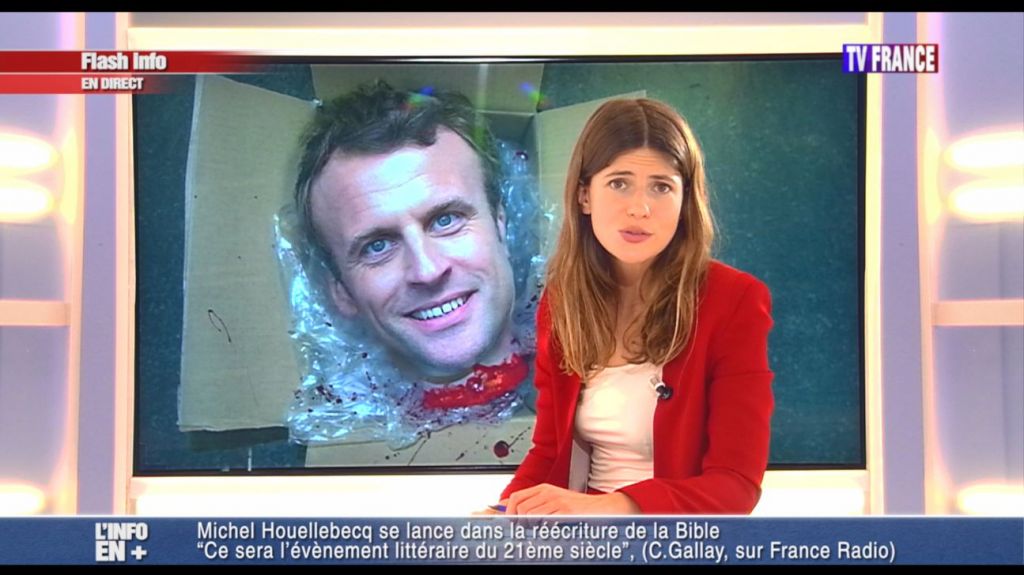



read more
- Catharsis, 5'
- Where the Wind Takes Us, 20'
Mariam fled her country, she is pregnant, and she is looking for a safe home for his baby. This travel led them to cross the sea in a small boat that carried only women until they arrived at the border city of Melilla. Due to the hazards along the way, women prefer to keep their stories secret. Nevertheless, Mariam has decided to tell her story to her child Treasure before giving birth on Christmas.
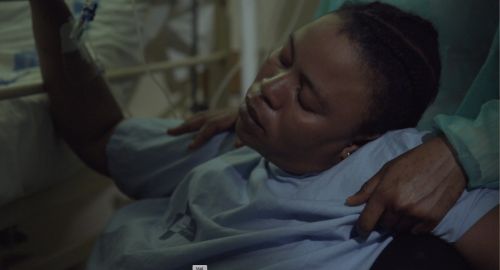
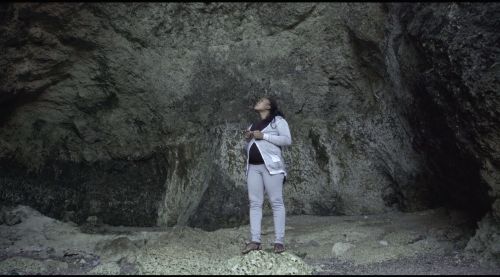
read more
- Evan, a survivor's story, 18'50"
“Evan, A Survivor's Story” is a documentary about a Kurdish journalist whose work filming and reporting on ISIS leads to threats to his life. He flees to the safety of Europe. The film reflects his struggle to learn English and not to lose hope despite the absurdities of the immigration system. This is a story of courage, love and survival, a story of Kurds everywhere and immigrants around the world.
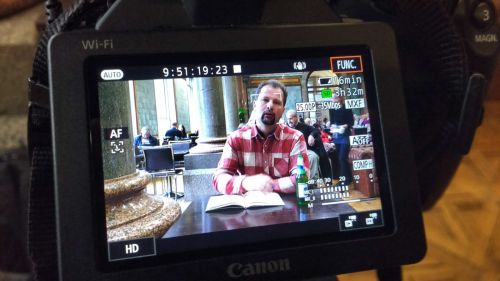

read more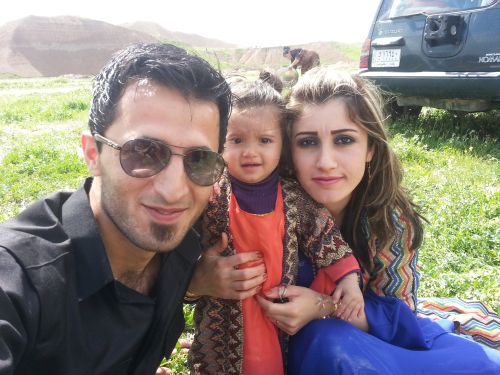
- Husband and Wife, 36'46"
The wife of a Polish immigrant finds out that her husband died suddenly whilst working abroad, and his body was captured by the local authorities and the police for investigation. With no economic means or practical support from anyone, she embarks on a journey to London to find his body and take it home. Her battle with bureaucracy to secure a decent burial for her late husband paves the way through the streets and institutions of London and informs the intimate picture of her personal reflections on life, love and death.
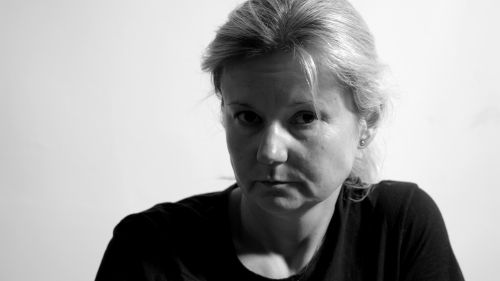
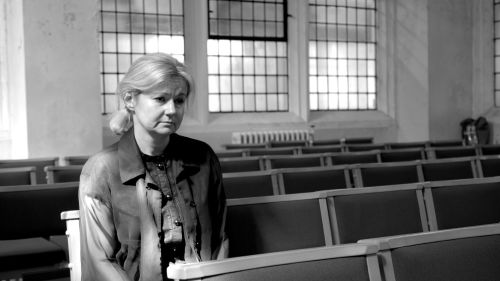
read more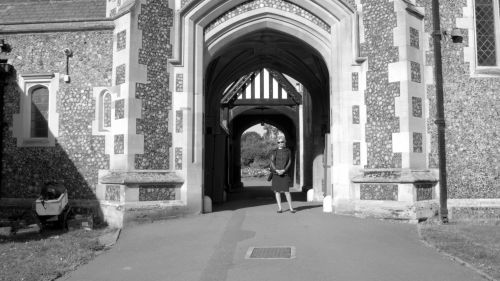
- Iktamuli, 5'28"
The film depicts thoughts and feelings of a mother with her so-called mentally disabled son. While she moves with him through everyday life, her ambivalent feelings, her struggles to accept him as he is, get into her way. The story is told as an associative montage of scenes, following feelings and experiences of the mother, as we listen to her inner monologue.
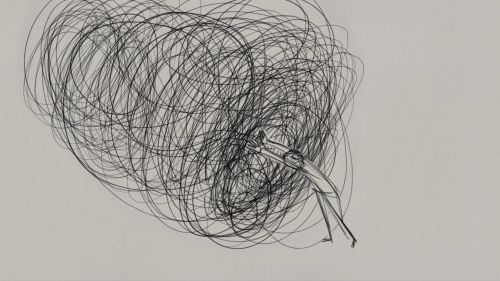
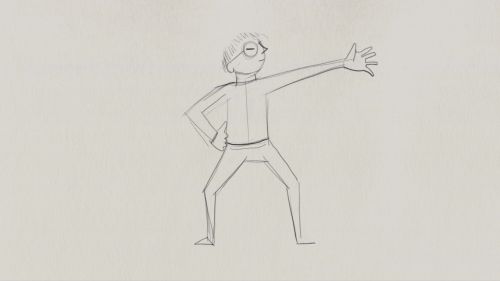
read more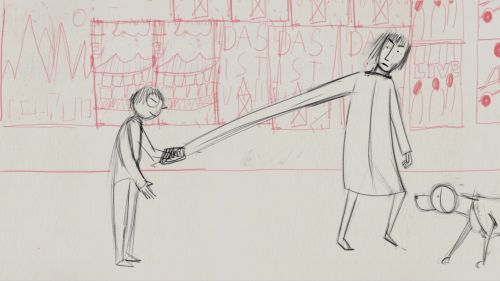
- Just Agree Then, 8'52"
Contrasting artistic visions, misplaced confidence and blatant ignorance collide on the backdrop of an increasingly fragile and divided world. In August 2018, seven months before the UK is due to leave the EU, two stubborn Scottish filmmakers struggle to make a short film together in the Austrian Alps. Can they find common ground, or will they have to go their separate ways?
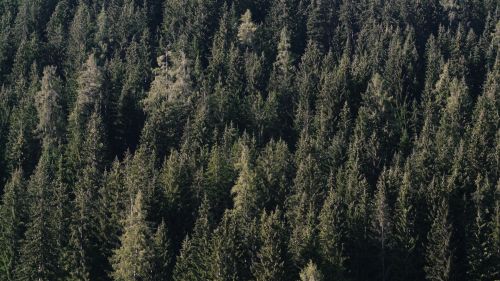
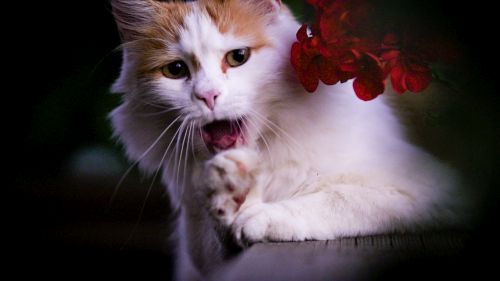
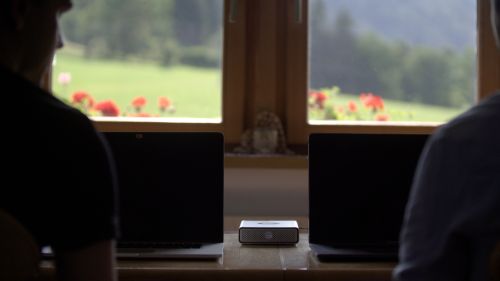



read more - Horse Riders, 19'27"
A certain village near Opole is celebrating Easter Sunday.People gather in front of the church, but there are also horses crowding here.It is a traditional element of Easter celebrations, among which you can also find prayers, a horse ride around the nearby buildings and passionate, alcohol-fuelled singing. Enigmatic editing and black-and-white pictures bring out the atmosphere of the holiday. The sacred merges with the profane.

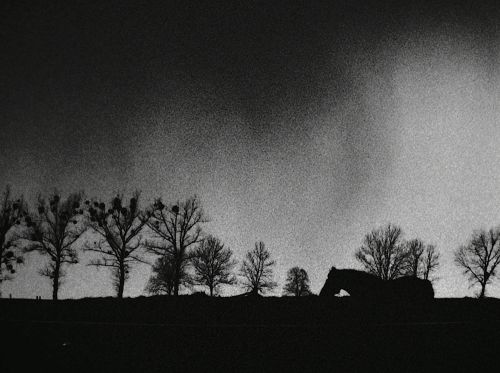
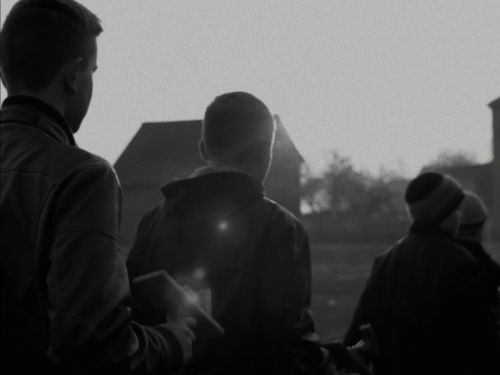


read more
- The Closure, 30'
This story is framed about family links. Using the images recorded on a cruise ship made by his parents, the author invokes a dystopian society where the problems of collective coexistence are solved by an algorithm and where the prohibition of abortion is compensated by a law that allows parents to prosecute their children if, at the age of 30, they have not fulfilled the expectations placed on them.
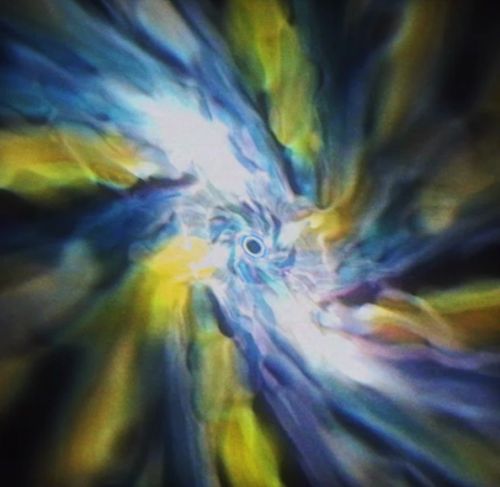
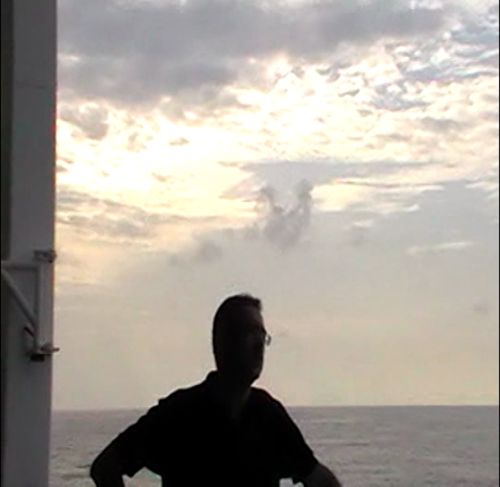
read more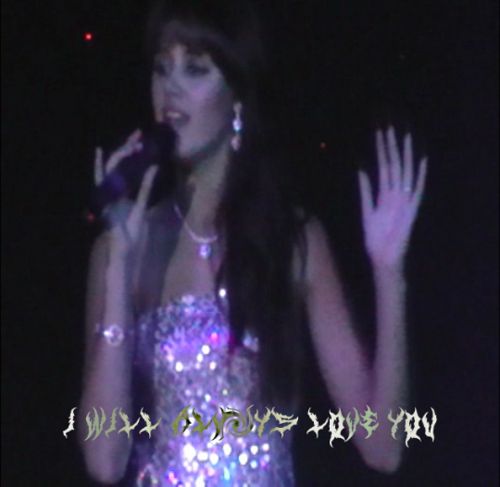
- Lasting Marks, 14'29"
The story of sixteen men put on trial for sadomasochism in the dying days of Thatcher's Britain was told by the police, the prosecution and the tabloid press — but not by those in the dock.
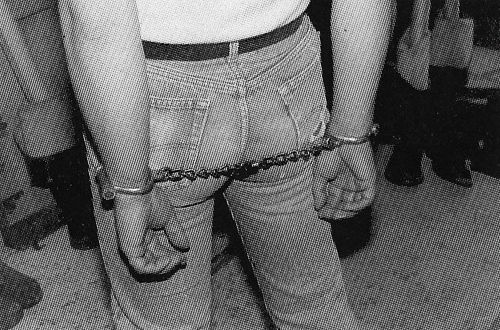
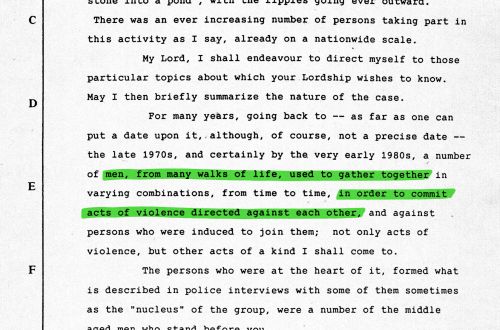
read more
- Let’s go to Antarctica!, 5'
Carlos is a human being; Right now he is in Antarctica on vacation. Penguins, who don't have cameras, will find it very difficult to remember Carlos.
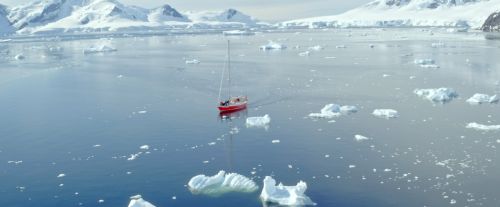
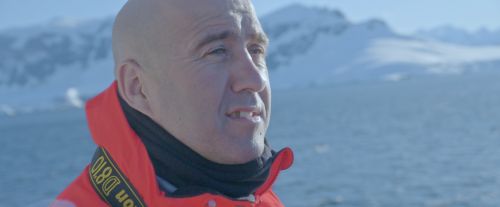
read more
- My Juke-Box, 15'
Last day, I overheard a music. An old rock’n’roll song. It sounds familiar… This is probably a music that realized into one of the mechanical devices of my dad, the wanderer, the man of a thousand lives, the king of the juke-box.

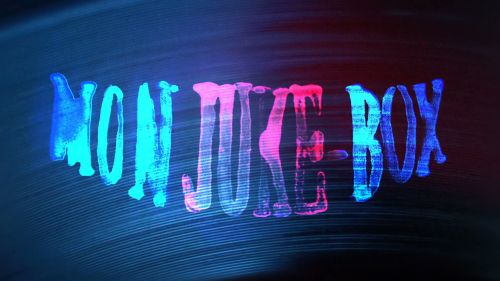
read more
- Natalie.D, 5'25"
- No Obvious Signs , 64'
This is the story of the woman soldier, Oksana Yakubova, who returns from war. Talking to psychologists, battling her PTSD and panic attacks, she tries hard to get back to normal life. The documentary shows her path from the beginning of her rehabilitation process till her way to the normal family life and work.

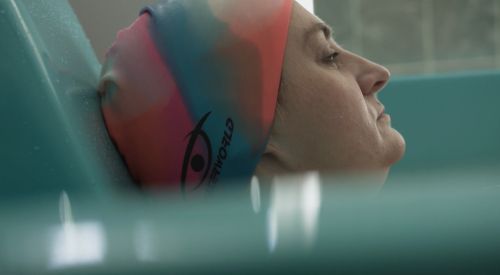
read more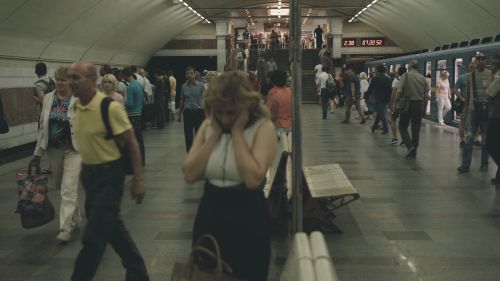
- NOBU, 8'
“NOBU” is a short film about former world champion karate and Japanese immigrant Nobuaki Konno. In this film his daughter and fashion designer Lisa Konno asks him about cultural differences. Prior to making this movie, Lisa made fashion collection inspired by him and his humorous view on integration. During the film he wears the collection which makes this production a short documentary and fashion film in one.
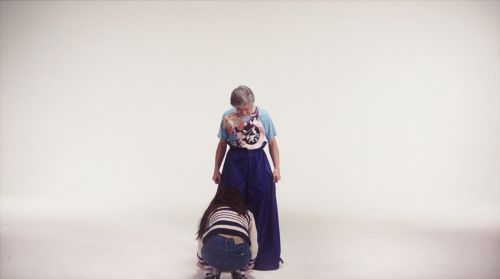
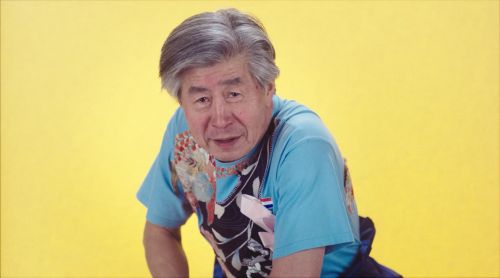
read more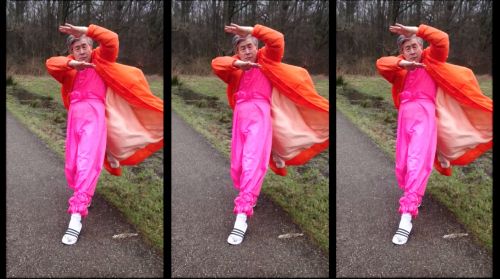
- Entry Forbidden to Unauthorized Strangers, 22'24"
Unable to travel around the world, I decided to travel around the statue of the Ferdinand Magelan, the first man who (kind of...) circumnavigated the world, 500 years ago. Antonio Pigafetta, who accompanied Magellan, wrote in “Relazione del primo viaggio intorno al mondo” and it's through his words I find the migrants who inhabit my neighbourhood in Lisbon.
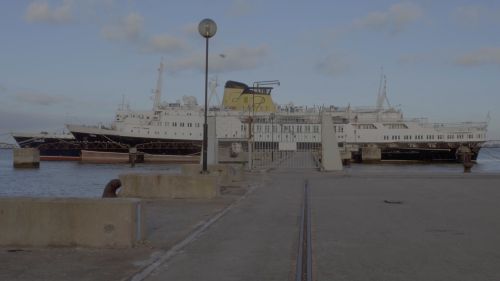

read more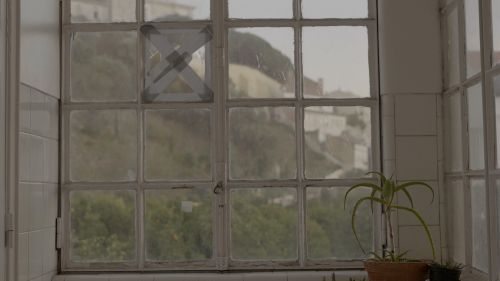
- So It Goes, 1'
In 1940 Truus lives in Rotterdam with her mother Aartje. In 2019, her grandson Arjan wonders what the first sunny days of May 1940 look like for them. He makes a reconstruction and concludes that there’s little he can add to it.

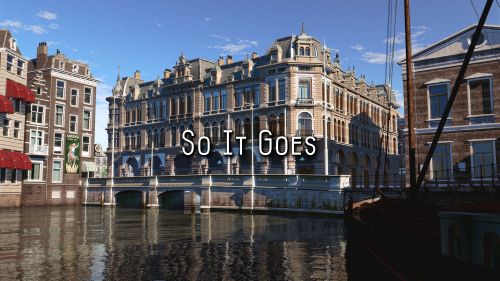
read more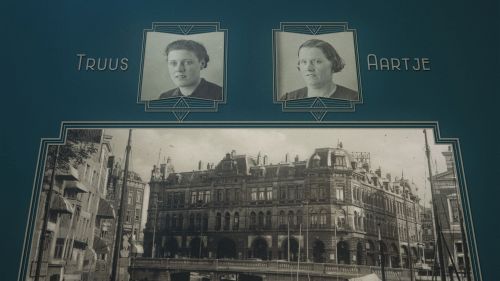
- Surface Dissected, 16'02"
A movie about self-determination and responsibilities, about prejudices, the Arabic parallel society in Germany, about trust and fears – and a strong love. Maria's and Salim's relationship is determined by a delicate balance. They live in Berlin; Maria works as a belly dancer; Salim's origins are in Syria and thus in a society which perceives belly dancing as dishonourable. While he waits for her, at night, in his car, Maria dances in the clubs for other men.
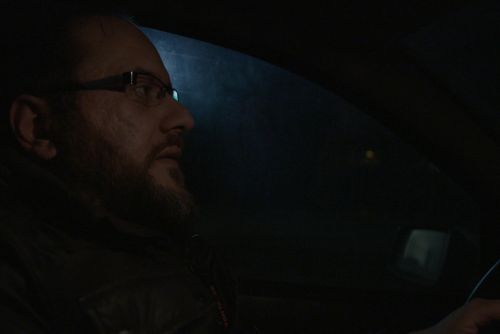
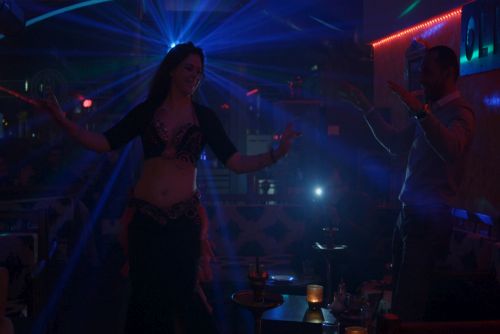
read more
- Dam, 22'
A father and a son on a trip. They meet to spend some time together after a period when they broke off all contact. But it is not a carefree weekend at a hut in the Bieszczady mountains. The drunk father asks a rhetorical question: “And what did you think – that it would be easy?” Building the eponymous dam on a mountain stream may be understood as fighting your own weakness, making joint efforts to overcome bias and mutual grievances. In the pool thus created, they may find expurgation and (temporary) solace.

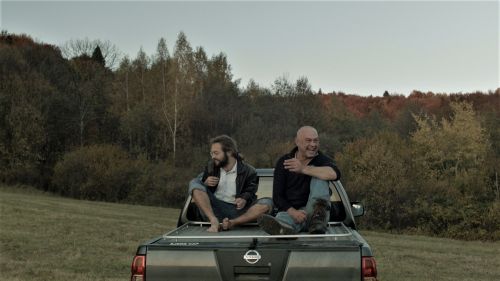
read more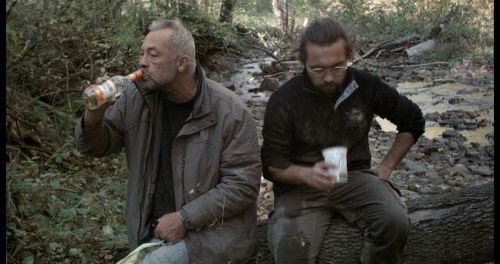
- The Man Who Looked Beyond The Horizon, 28'23"
A playfully edited documentary investigating the disappearance of a man who proves to have left behind something more special than just a mystery.
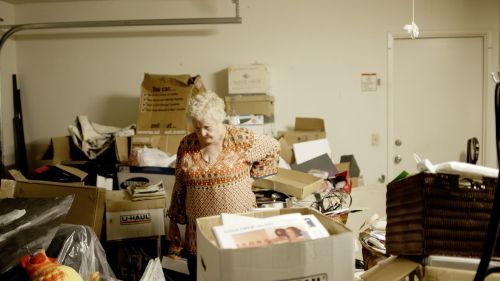
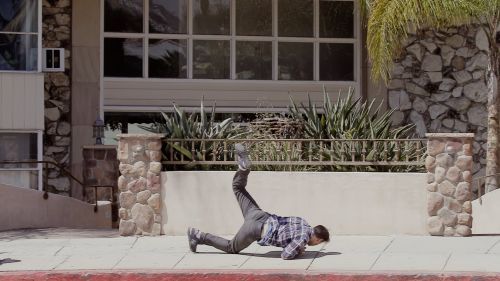
read more
- The Steppes of Khazar, 6'49"
The fate of the Khazar people, as it is told by their conquerors – loosely based on “Dictionary of the Khazars” by Milorad Pavic.

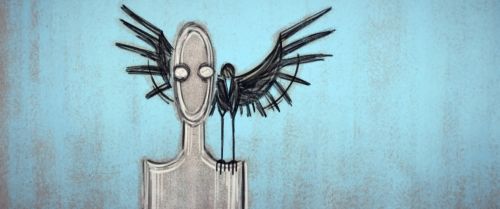
read more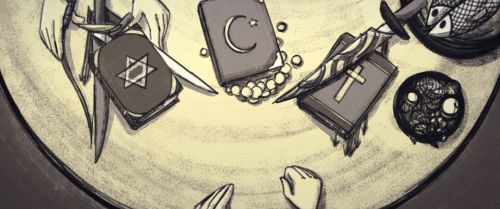
- Tracing Addai, 24'54"
In his early twenties Addai leaves his entire life behind and moves to Syria to help victims of the civil war. At first he is assigned kitchen duty together with Ilias. Addai writes to his mother: “Don’t worry about me, I’m fine.” Two years later Addai’s mother receives a letter from prison. Ilias has been sentenced for terrorism by a German court. He wants to meet her and writes: “One thing you have to believe me, we went there with good intentions.”
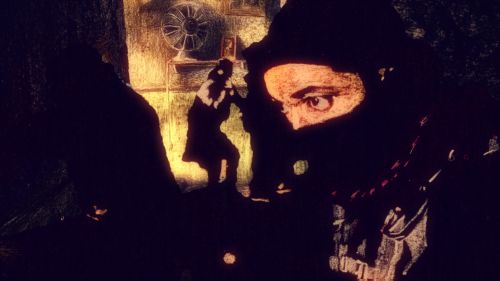

read more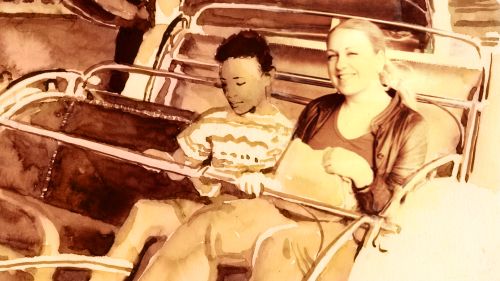
- Track, 1'
A fictional documentary narrated by Rosa Limanci, a young Latina woman who reflects on the reasons for her migration and the condition of depopulation of her current place of residence in the south of Europe. It features a reflection on her childhood and her present, using the crossroads as examples of the depopulation of territories which are considered far away.
The question is: are rural realities in Spain and in Latin America comparable? Specifically, in relation to population and abandonment of territories, poor and rich alike.
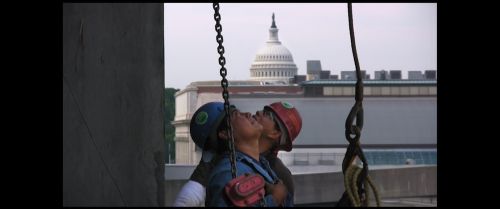
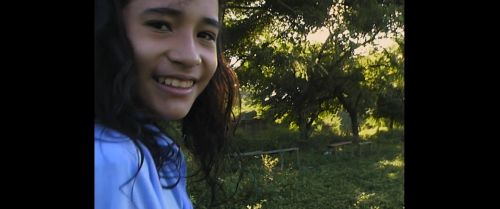
read more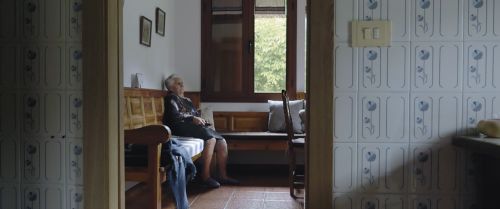
- Under The Dress, 23'
A hilarious journey of Aleksandr towards self-discovery and acceptance through the retro drag queen escape. He embarks upon a dazzling drag queen transformation in which he plays his own role: a character in search of his identity. Suspended in a performance between the real and the fantasy, Aleksandr confronts his ideas on sexuality, gender and his own past. “Under the Dress” is an exercise of mise en scène close to Werner Schroeter's, an ultra-contemporary form of demanding the legitimate right to any form of sexual identity.
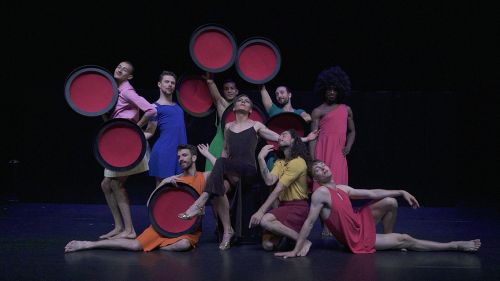
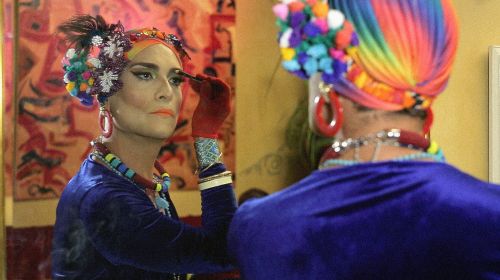
read more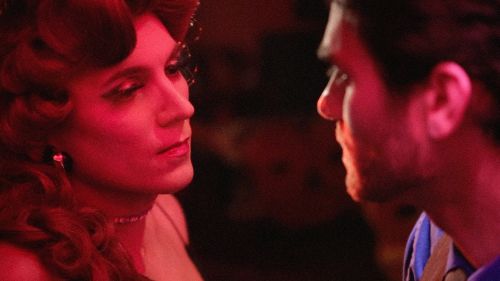
- Untitled (a refusal of leave to land), 28'20"
An essayistic short film on a prisoner of war camp from WWII, the arms industry in the Ruhr area and the relation between individual and collective memory. Based on a childhood memory of the artist finding a fossilized Ammonite that was once part of a railroad track.
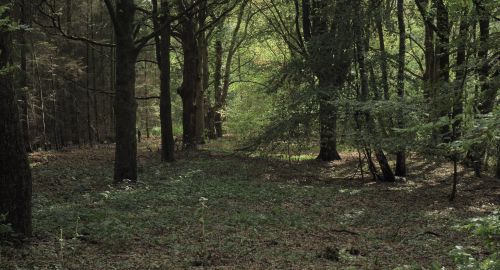
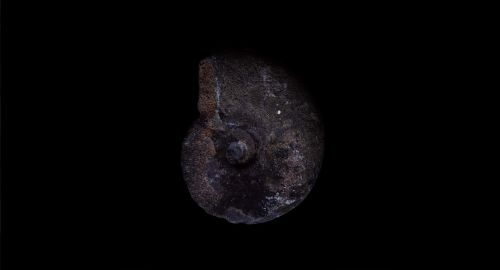
read more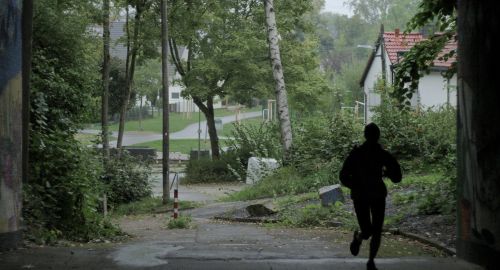
- When the Dragon Came, 21'
A story from the countryside. She was almost 12 when she met him and two years later became pregnant with their first child. She did not want to get married, but her family decided otherwise. He married her because they were equally poor and unhappy. They had 8 healthy children who left home a long time ago. Conjoined with each other and their small village, they are not waiting for a change. Their daily life revolves around work: grazing cows and farming the land. Next to each other all the time but separate.
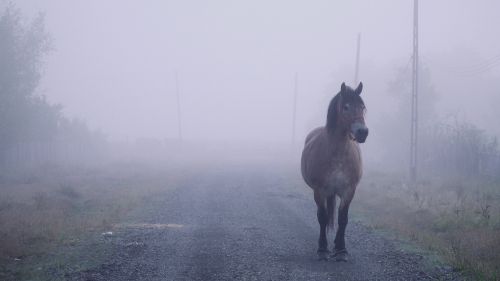
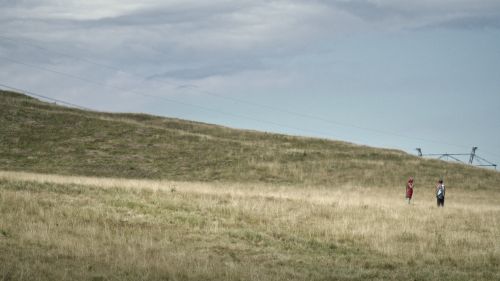
read more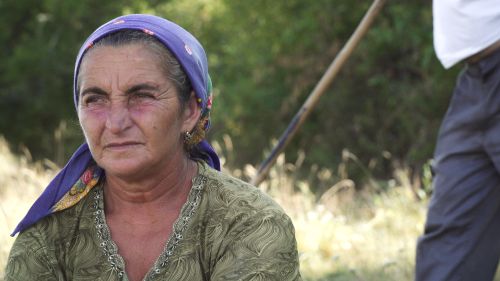
- When the Light Goes Out, 5'
The documentary “When the Light Goes Out” aims to, through an experimental video essay and using images from the photos of the Fotocine Fund existing in the collection of the Municipal Museum of Coruche, to make known some aspects of the familiar reality of the mid-twentieth century in this Ribatejo region and its relation to photography.
read more


